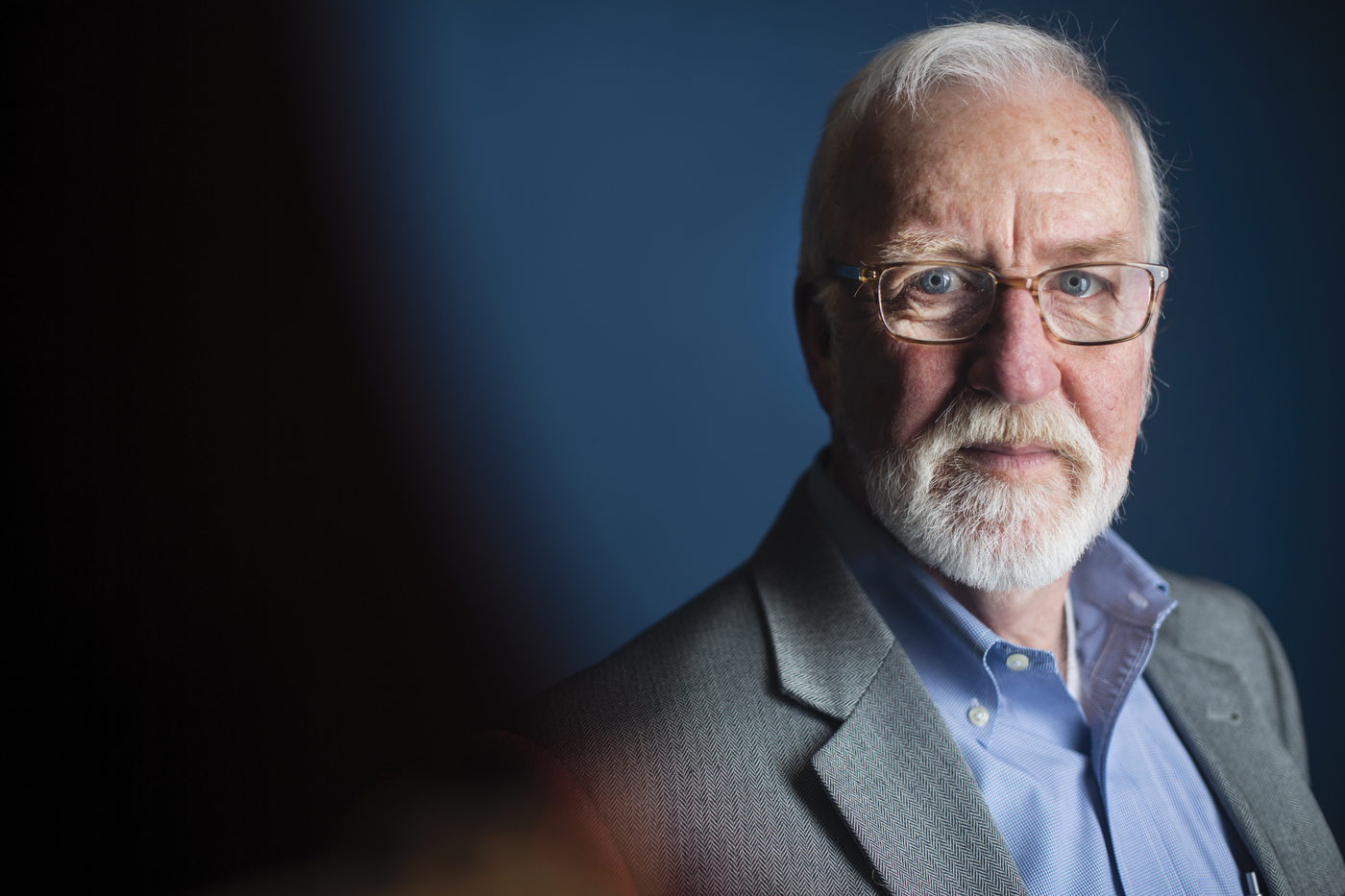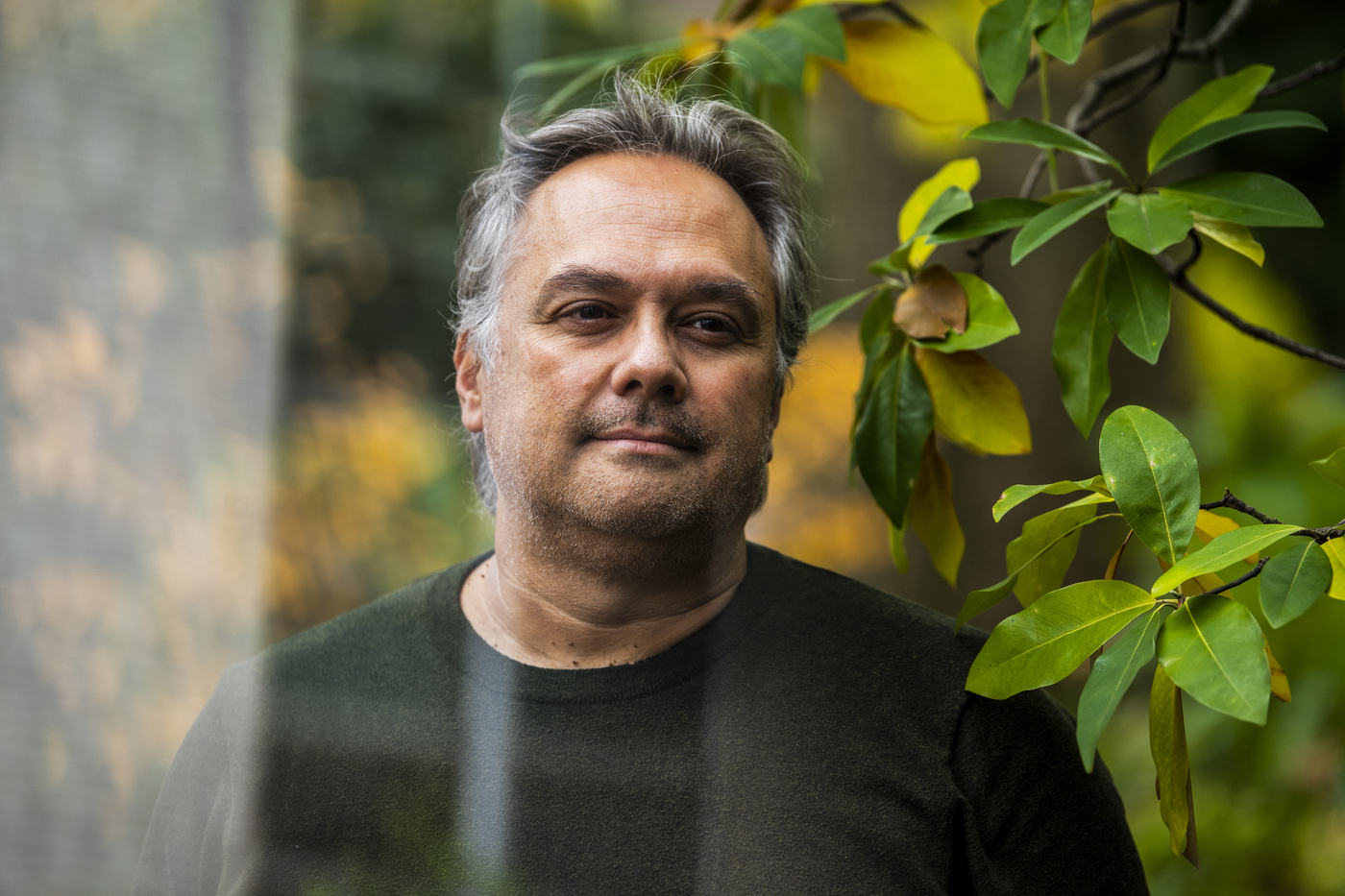How race played a role in Ahmaud Arbery’s murder

The three white men convicted in November of murdering Ahmaud Arbery, a 25-year-old Black man, were found guilty on Tuesday in a separate federal hate-crimes trial that centered on video- and text-based evidence of racism.
The federal jury found that Travis McMichael, 36; Gregory McMichael, 66; William Bryan, 52, violated a federal hate-crimes statute in the killing of Arbery. The three were convicted on all counts, which included violating Arbery’s civil rights, kidnapping, and for the McMichaels, one count each of brandishing or discharging a firearm during a violent crime. It took the jury roughly four hours of deliberation to come to a decision.
Although experts viewed the case as a “slam dunk,” hate-crimes prosecutions are still rare because of how difficult it is to prove motivation, Northeastern experts say.

Professor Jack McDevitt, director of the Institute on Race and Justice at Northeastern, poses for a portrait. Photo by Adam Glanzman/Northeastern University
But often victims want answers to the question of why a crime was committed—questions that can complicate the prosecution in certain cases, says Jack McDevitt, director of the Institute on Race and Justice at Northeastern.
“When we talk to victims of hate crimes, they say it’s really important that people be held accountable for the motivation, as well as the actual crime,” McDevitt says. “The family in this case can have some measure of satisfaction that the state and federal government did their jobs.”
The three men were sentenced to life in prison following their convictions last year in the state murder trial, which found that the men pursued Arbery, who was on foot, in a truck before Travis McMichael fatally shot him. Georgia prosecutors focused on the mens’ decisions, and less on the role of race. The convictions on the hate-crimes charges now carry up to life in prison.
During the federal trial, prosecutors relied on two dozen text messages and social-media posts by Travis McMichael and Bryan that deployed racist language, including racial slurs and inflammatory language about Black people, according to PBS.

Carlos Cuevas, professor of criminology and criminal justice and co-director of the Violence and Justice Research Lab, poses for a portrait. Photo by Alyssa Stone/Northeastern University
Federal prosecutors had reached a deal with the three men in which they would plead guilty to the hate-crimes charges in exchange for 30-year sentences. But Arbery’s mother, Wanda Cooper-Jones, made an impassioned plea against the deal that won the support of the judge.
“I’m asking on the behalf of his family, on behalf of his memory, and on behalf of fairness, that you do not grant this plea in order to allow these men to transfer out of Georgia state custody into the federal prisons, where they prefer to be,” Cooper-Jones, had said, according to the New York Times. According to the Times, federal prison facilities are “generally regarded as having better, safer conditions” than most state prisons.
In a rare move, Judge Lisa Godbey Wood of the U.S. District Court for the Southern District of Georgia sided with the Arbery family and declined the plea bargain.
“It’s really good to do it this way because with the state looking for a conviction, often they’ll trade out the hate-crime charge,” McDevitt says.
But there’s still a huge disparity between the kinds of hate crimes people of color experience every day, and those that are actually prosecuted, says Carlos Cuevas, a professor of criminology and criminal justice who co-directs the Violence and Justice Research Lab at Northeastern.
“Hate-crime prosecution is really just a very small part of this problem as a whole,” Cuevas says. “That is, the problem of bias-motivated behavior. Behavior of this kind is a much bigger problem than what we see in terms of actual hate-crime prosecution.”
Cuevas says he hopes prosecutors at all levels of government “get better at applying these criminal justice remedies” to hate crimes of all size and severity.
For media inquiries, please contact media@northeastern.edu.





